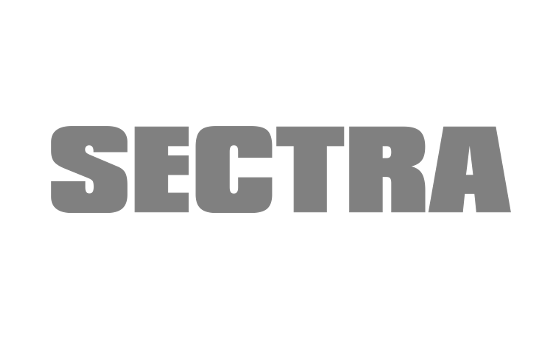 The trust's Oldham laboratory has completed technical go-live, with its Salford site also set to follow. Collectively the laboratories provide a wide range of general and specialist pathology services that support diagnoses for patients in the region. This includes one of the largest dermatology departments in the country, and gynaecology services that cover six hospitals.
The trust's Oldham laboratory has completed technical go-live, with its Salford site also set to follow. Collectively the laboratories provide a wide range of general and specialist pathology services that support diagnoses for patients in the region. This includes one of the largest dermatology departments in the country, and gynaecology services that cover six hospitals.
Pathologists and biomedical scientists at Northern Care Alliance will become the latest in Greater Manchester to begin the process of swapping microscopes for high quality digital images. These will be seamlessly accessible through an enterprise imaging system, provided under an existing agreement in the region with medical imaging technology provider Sectra.
In total, professionals in seven laboratories across the Greater Manchester Pathology Network are due to use the enterprise imaging system, with Stockport NHS Foundation Trust being the first to deploy the pathology module earlier in 2023. The same system is already in use in acute trusts across Greater Manchester, where it is used to view and analyse radiology imaging across the region's imaging network.
Amanda Ogden, service manager for the cellular pathology and mortuary service at Northern Care Alliance NHS Foundation Trust, said: "Digital pathology is the biggest thing in decades to happen in our laboratories, and will revolutionise how we work together across former organisational boundaries to deliver services for patients, and how our clinical teams collaborate. Digital is at the top of the agenda. There is strong buy-in from our consultants who are excited by the possibilities for enhancing our diagnostics, but also for research and new discoveries.
"This will support training and improve how we share expertise. If we have an interesting case, we will no longer need to package slides and send them through the post. Instead, people across sites will have immediate access to high quality digital images. Modern ways of working will also help us to retain staff - from people starting their careers to people approaching retirement."
Historically, if a pathologist requires a second opinion, slides are sent to specialists in other hospitals to review and report. With the introduction of digital pathology, staff will have immediate access to digital images, regardless of their location. They will be able to share screens and talk through cases, learning from specialist expertise for future similar cases.
The move to digital pathology is expected to enhance multi-disciplinary team meetings and collaboration. Pathologists will be better able to work from where they need to. In some cases, this will mean that consultant pathologists will be able to work onsite with frontline clinical teams, whilst being able to collaborate with pathologists in other locations. In other circumstances, staff will be able to work from home - without the need to take slides away from the laboratory.
Matthew Goodwin, a biomedical scientist at Northern Care Alliance NHS Foundation Trust, said digital pathology would help to increase efficiency. "Until now we would spend significant amounts of time preparing slide trays for pathologists and multi-disciplinary teams, sometimes finding that the slide isn't available because it is being reviewed elsewhere," he said.
"Now images of slides will become instantly available at the click of a button to different professionals in different locations. It will mean that we can focus more of our time on quality control, ensuring that samples and stains are of the right quality before they go to be reported or discussed by pathology teams. It will allow us to collaborate more effectively around an image on a screen, allowing us to more easily and accurately review each other’s work, and to more easily train the next generation of biomedical scientists."
Jane Rendall, UK and Ireland managing director for Sectra, said: "This is the latest step in Greater Manchester's vision to break down barriers for both patients and clinical teams. It means patients having greater access to the specialists who can inform the best quality of diagnosis. And it means a collaborative clinical environment - where people can learn quickly and contribute more to effective patient care. As someone who started my career in NHS imaging, it is extremely rewarding to see such progress being made in our diagnostic services."
About Sectra
With more than 30 years of innovation and approaching 2,000 installations worldwide, Sectra is a leading global provider of imaging IT solutions that support healthcare in achieving patient-centric care. Sectra offers an enterprise imaging solution that provides a unified strategy for all imaging needs while lowering operational costs. The scalable and modular solution, with a VNA at its core, allows healthcare providers to grow from ology to ology and from enterprise to enterprise. Visit Sectra’s website to read more about Sectra and why it’s top-ranked in 'Best in KLAS'.
About the GM Pathology Network
The Greater Manchester Pathology Network is a collaborative pathology network across the seven GM NHS provider organisations which include:- Bolton NHS Foundation Trust
- The Christie NHS Foundation Trust
- Manchester University NHS Foundation Trust
- Northern Care Alliance NHS Foundation Trust
- Stockport NHS Foundation Trust
- Tameside and Glossop Integrated Care NHS Foundation Trust
- Wrightington, Wigan and Leigh Teaching Hospitals NHS Foundation Trust
The network strives to deliver better patient care across clinical and diagnostic pathways and address health inequalities across the region.